We invited Dr Ahmed Ogwell Ouma, Deputy Director of Africa CDC, and Dr Leonardo Simão, EDCTP High Representative for Africa, to share their experiences of this collaboration and their wishes for the future.

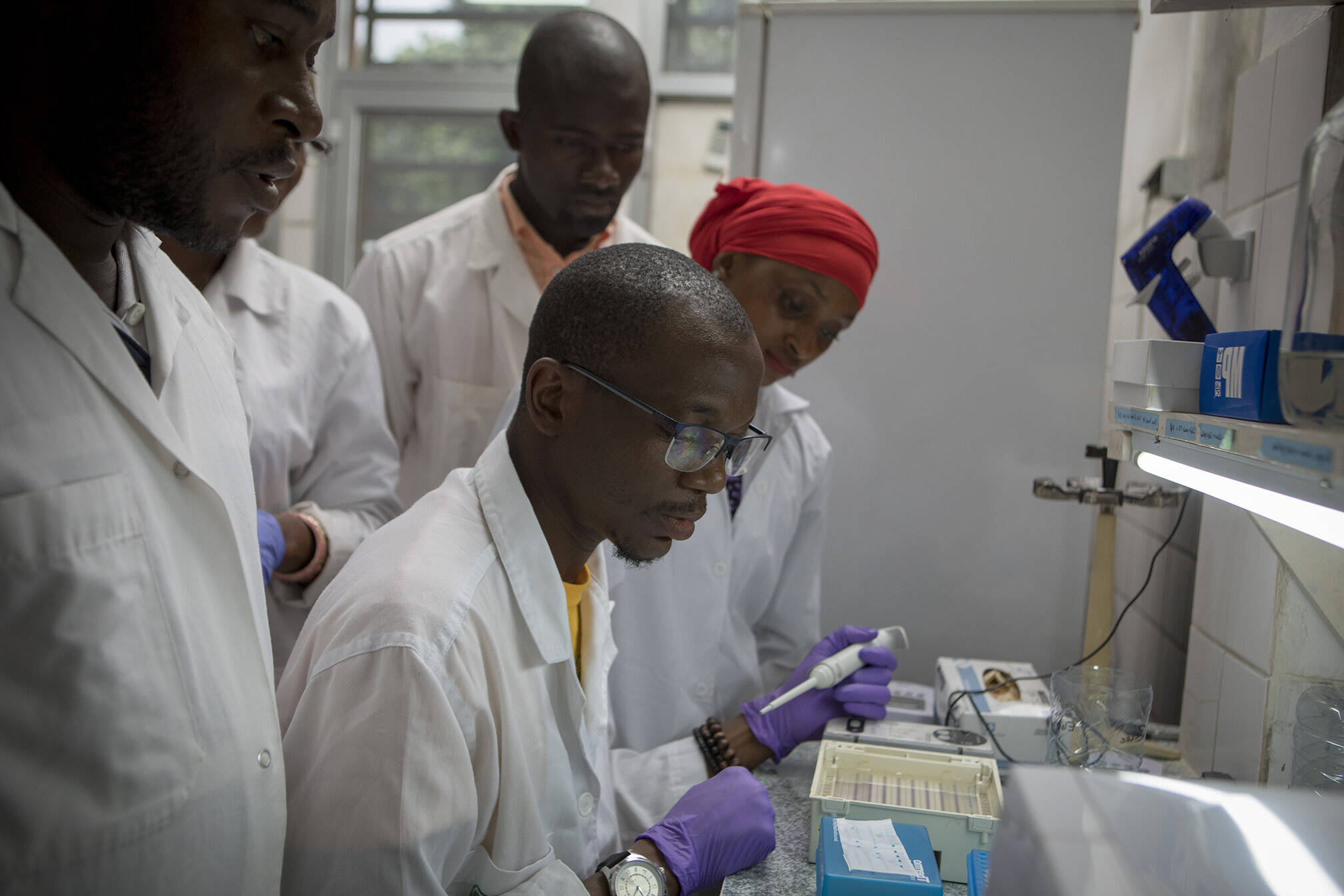
scroll down
“We need to have a strategy on how to liaise with our partners so that they have a better understanding of our needs and priorities and foster their willingness to work with us first, and then proceed to jointly act on these priorities.”
— Dr Leonardo Simão
“For a long time, the needs and priorities of Africa were not part of the discussions. But experience has taught us – and the COVID-19 pandemic has been a huge laboratory for learning – that it is time that Africa strengthens its ability to set its own priorities.”
— Dr Ahmed Ogwell Ouma
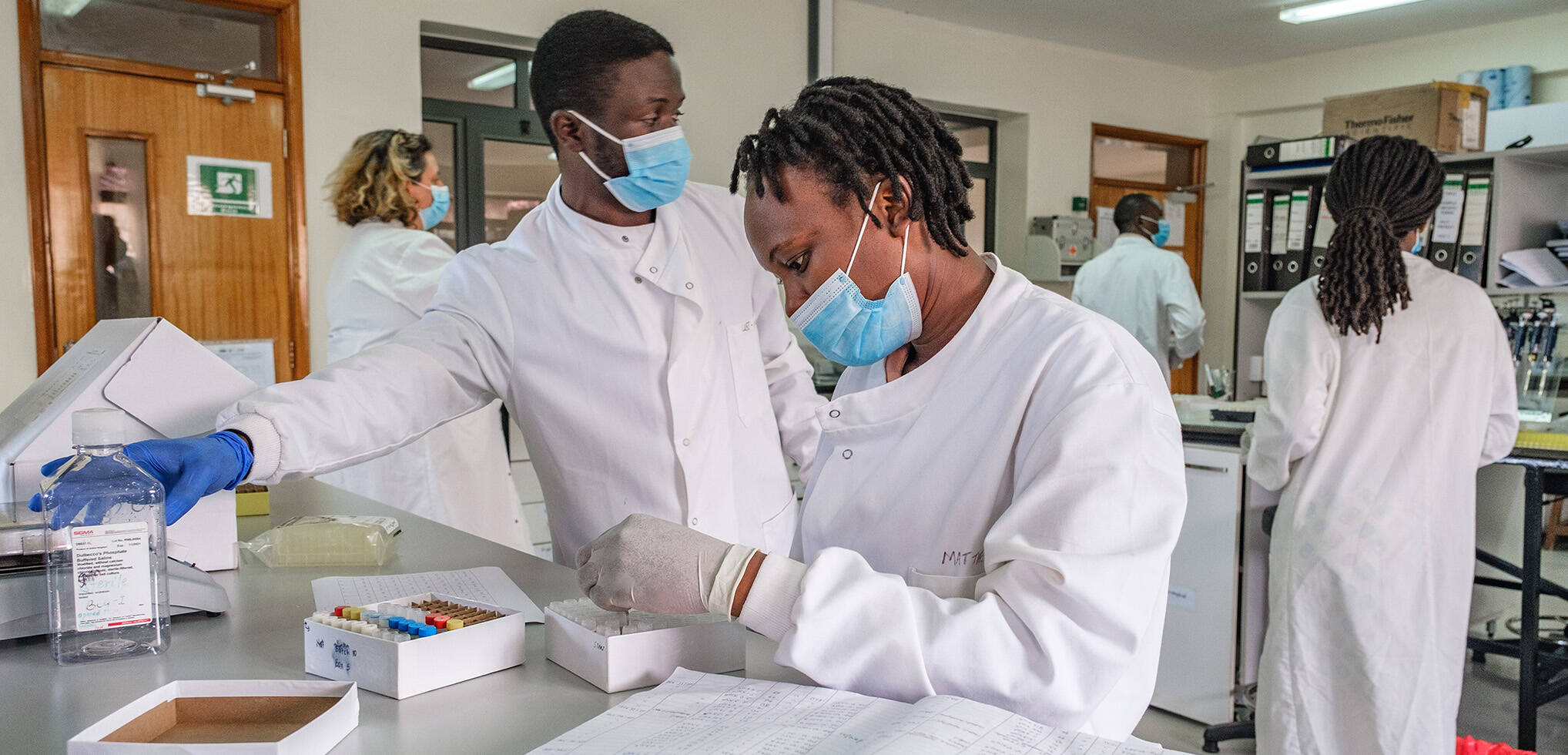

Dr Leonardo Simão
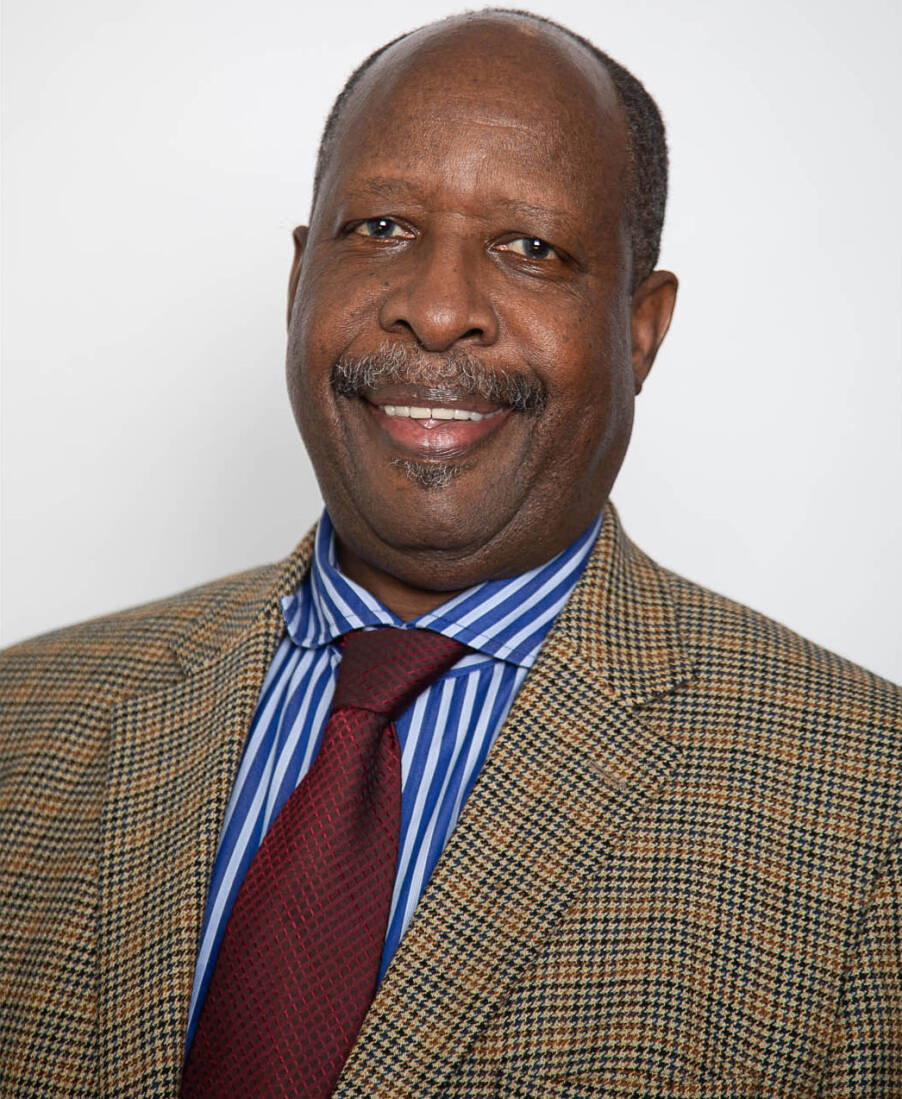
Dr Ahmed Ogwell Ouma
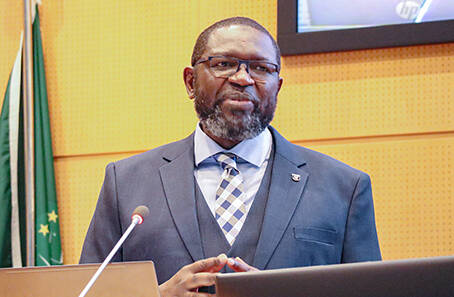
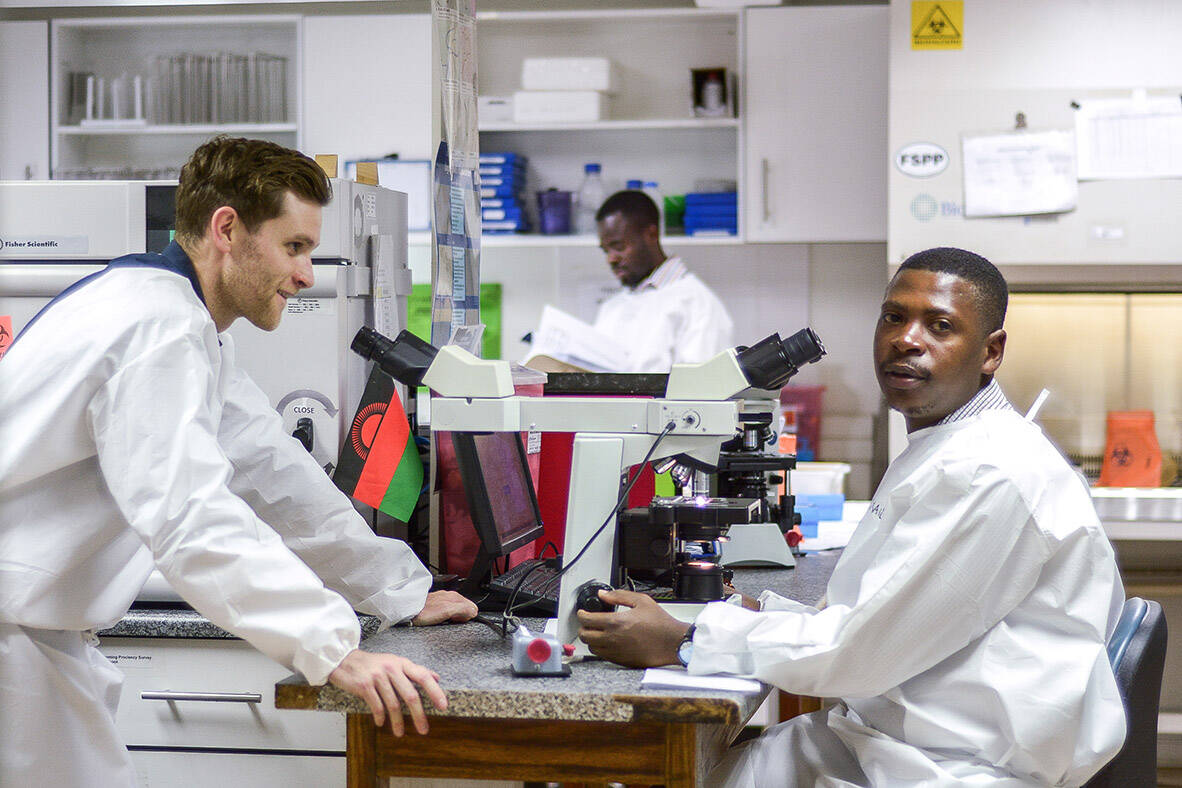
LS: Let me start with congratulating our heads of state and the governments in Africa for creating Africa CDC. It is a major step forward. I am a former Minister of Health myself, and the absence of an institution similar to the Africa CDC at the time created difficulties in dealing with diseases in a more coordinated way, with the involvement of the political leadership of the continent. For example, when we were faced with the HIV/AIDS pandemic, we did not have a coordinating institution in Africa that could bring health ministries together and create a common vision and approach to counter the pandemic and take that vision to the approval of the heads of states of Africa. The political dimension of combating disease was very fragmented. With the creation of Africa CDC, this situation has hugely improved. As illustration of that, the African continent acted in unity and built a very strong and coordinated response to the COVID-19 pandemic, and we can see the results. As EDCTP our commitment to work with the continent is there, and we will continue to do so, as much as we can, always addressing the real needs and priorities of the continent.
Africa CDC and EDCTP recently signed a Memorandum of Understanding. What are your hopes and expectations of this reinforcement of our collaboration?
OO: Looking at human capacity, my hope and expectation is that we are going to expand. Not only in terms of numbers of professionals that will be trained, but also in terms of the different types of cadres of professionals that we need in preparedness and response. We already see the fruits of our collaborations through, among others, the 150 professionals that are being trained in biostatistics and epidemiology, and the female fellowships that have been created to balance the skewed nature of scientific leadership. If we continue along this path, we could double those numbers, and we could look at other aspects such as disease intelligence, laboratory sciences and social sciences, et cetera.
The other hope is around the infrastructure. When we put together the right team of professionals, we have to give them the right tools to work with. We must take care of our institutions, health workforce, and we must secure our supply chain and build the right partnerships. The power of partnership is infinite, as the one who is not able, can start being able with partners that support the work you are doing.
Looking into the future, I see a space where EDCTP and Africa CDC will be able to get even better results from those who have been trained by ensuring they are being networked, as professionals, as institutions, and also by networking capacities. This way, we bring together all the capacities and capabilities on the continent, that we can draw on every time we face a disease threat. So if a lab is in Libreville or in Cape Town, it doesn’t matter. If we need them, we draw on that expertise because we have networked our institutional capacities and capabilities.
LS: I fully agree with Dr Ouma on the issue of prioritisation and addressing real needs. Another dimension to sustainability is long-term commitment and perspective. Quite often, we have seen one project jumping to the next. EDCTP has changed that, bringing in a long-term perspective. We have been steadily training scientists. Growing a skilled workforce doesn’t happen in two or three years, it happens over a long period of time. And by taking this time, we are bringing sustainability to what we are doing.
Another challenge we have is to further develop our capacity to get our message out. It’s what we call health diplomacy. We have to educate and convince our partners: Why do we have these priorities? Sometimes we fail ourselves as Africans to spell them out clearly. It is not enough to just be at meetings and say something; we need to have a strategy on how to liaise with our partners so that they have a better understanding of our needs and priorities, and foster their willingness to work with us first, and then proceed to jointly act on these priorities.
Another aspect that is not addressed properly yet, in my view, is the management of clinical research institutions. Who is managing these institutions? What is the training these colleagues have had? They are dealing with large amounts of funds, human resources of high professional calibre, and other resources that require the right skills from the managers. Occasionally, something goes wrong in an institute’s management and it may take years to build back the damaged trust with partners. We need to not only train researchers, but the managers of our institutions too, including the adoption of administrative procedures of high standard. I see opportunities for collaboration in this area.
What do you think can be done differently to achieve transformative and sustainable capacity in research and health in Africa?
OO: What I think can be done differently, is the approach towards identification of priorities and needs. The current environment encourages that whoever has resources, determines what will be done with these resources. To draw a parallel: if I have asked for a shirt, and you tell me: no, you need trousers, I will have trousers but not be fully dressed.
For a long time, the needs and priorities of Africa were not part of the discussions. But experience has taught us – and the COVID-19 pandemic has been a huge laboratory for learning – that it is time that Africa strengthens its ability to set its own priorities, so that when resources come to the continent they will address the actual problems of the problem owners. I believe when this is done, it will be transformative in nature, and the continent will assume ownership and responsibility for its own public health agenda.
Research follows such prioritisation. When you have identified your needs and prioritised them, you will conduct your research along those priorities, you will build capacity along those priorities, and you will secure resources along those priorities. When this happens, we will see much better outcomes.
How do you think the collaboration between Africa CDC and EDCTP is impacting the work that Africa CDC is doing?
Ahmed Ogwell Ouma (OO): If I were to choose one word, it would be ‘significant’. The work of Africa CDC and EDCTP are coming together and are having a significant impact on the sustainability of public health capacity on the African continent. And I say this because the core part of our partnership is capacity building.
When you build capacity in a setting where resources are inadequate, like in Africa, it means that each and every capacity goes a very long way in addressing the huge gaps that we have. There is an urgent need to train, and retain professionals within the health security space and to create the interest for other young professionals to step into that space. Because if there was no opportunity to step into that space, they would be looking for other things to do to make a living. By creating these types of opportunities, the partnership has had a very significant impact on our work.
Capacity building is also one of the core pillars of our New Public Health Order in Africa: our vision and path for the continent to do things better and faster in a bold way in the public health space. We see the partnership with EDCTP as essential in addressing the very urgent need to improve health security in Africa.
Leonardo Simão (LS): What Africa CDC and EDCTP are doing together, is to add flesh and organs to the bones. Africa CDC is providing the bone skeleton for public health security in Africa, and by building capacity and creating infrastructure we put the flesh and organs to it. With the networking and coordination in the hands of Africa CDC we now have a very strong tool to deal with disease. Moreover, I see a lot of enthusiasm in our relationship. I see that in the launch of the training of 150 fellows in Epidemiology and Biostatistics supported by Africa CDC and EDCTP. I think it is a first time that this happens in Africa, and if I look at this number, I’m thinking: one day we will have hundreds of them. And they are going to make a difference!
